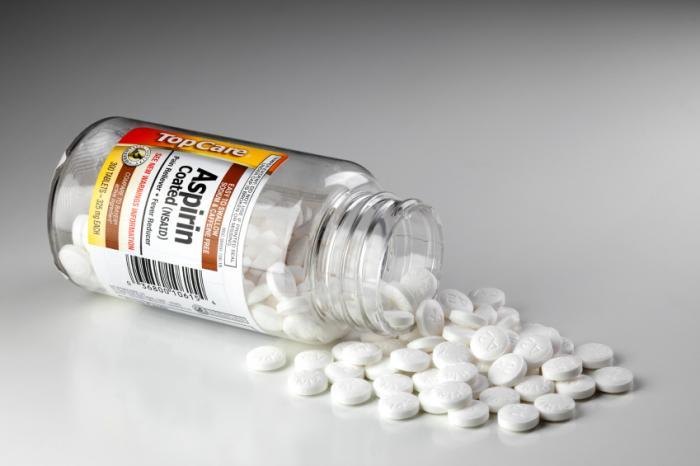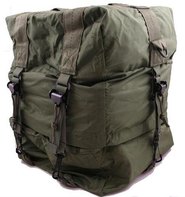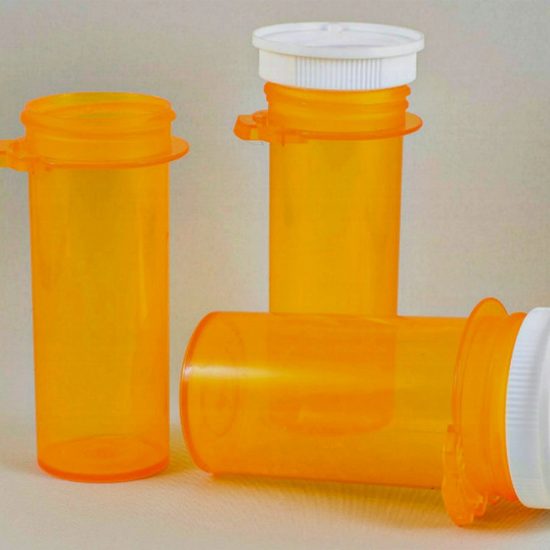
I have three decades experience in trauma ICU care at a level three trauma center (used to be level one was the worst category. That was flipped a few years ago) and recently saw yet another YouTube video where the Israeli bandage was being waved around like it is the savior for all SHTF issues. Quick clot and compression bandages will certainly save lives if applied and monitored correctly. As ever get training for health care needs before you need them and try to get real life training not just videos and books.
However I got to thinking about what I would do with 32 years nursing experience and most of that in trauma if I had a person laid up in bed and was faced with providing hospital care in SHTF and why. It seemed to me the knowledge is not that widely available or known but please, as ever, correct me in the comments below. As ever Doctors are really smart and any advice I give here is intended only for my own use and you should not use any of the advice given unless you have had a smart Doctor agree with it.
Bed Rest
Back in the dawn of time a lot of my surgical and medical patients used to experience sudden cardiac arrest. I was around for as medical science figured out why and how to treat this reasonably common (in the 1970s) complication of bed rest. Deep Vein Thrombosis leading to Pulmonary Embolism (same thing that kills discount airline passengers. Always fly business class!).
Bed rest is an easy prescription especially if the injury is severe. Bed rest is what I love to do when sick and getting me out of bed is hard. However with eight hours of lying around the venous blood flow through the large veins of the legs and calf slows. Pain, fear and lower levels of consciousness will make this worse. Dehydration also encourages the venous blood to slow and thicken deep within the person’s legs and calves.
However many injuries in SHTF might well need bed rest so what can you do?
Low Molecular Heparin injections are really good but you likely will not have any. T.E.D. ™ anti-embolism stockings are a good thing to have in your trauma kit. Reasonably cheap and come in a variety of sizes. You can also use tight bandages wrapped around the legs but honestly they are more likely to cause venous congestion than minimize it. Here is what you should do if you have appropriate stockings or not. Move the legs and the joints carefully trough a range of motion (depends on the injury of course) every one to two hours throughout the stay in bed. Get them up into a chair and make them walk as soon as practical. In the 1960s you got to lie in bed for a week being hand fed if you had a heart attack to minimize cardiac stress. This caused a lot of deaths from embolism! This is also why new mothers get booted out of hospital in hours as well. Beds are very dangerous places if you lie in them for ages. Give a bit of daily Aspirin but read the next section carefully first.
Start gentle laxatives as early as possible and encourage high protein foods and drinks. Monitor their temperature twice a day at the same time of day and consider gram negative antibiotics if they develop even a slight temperature.
Aspirin
Most people are familiar with aspirin. If the person is a child or a baby do not give ever. Rarely it can kill the child. However if you are taking a non-steroidal anti-inflammatory (NSAID) you should also never take aspirin. Advil, Motrin, Aleve are common pain killers but never, ever take them and aspirin. Take one or the other, never both. If you have asthma try to avoid taking aspirin. The reason is that a severe asthma attack can be triggered by aspirin especially if you have asthma and/or are also taking an NSAID (this is arguable). The aspirin also makes the NSAID ineffective (this is true). Now I know some people are going to be saying “but I have asthma or I took Advil and aspirin and I am fine”. You were lucky and most times you will be lucky but you might not always be lucky. These are rare but fatal complications.
If you are bleeding actively (gushing or oozing blood or bruising under the back- check frequently when you turn the person on bed rest who has had a trauma) never give aspirin. It is an excellent blood thinner which is why small doses if safe should be consider if your person on bed rest can safely swallow. I also have aspirin that absorbs via the mouth for those too ill to swallow liquids safely. Pulmonary embolism is a proven killer of people on bed rest who do not have access to regular injections of low molecular heparin. If you have ulcers, gout, kidney, or liver diseases do not take aspirin. It is to be avoided in hypertension but frankly I consider it too valuable to avoid if primary hypertension unrelated to kidney disease.
Read More: Medicine to Stock up on for When There Is No Doctor
Broken bones should also avoid aspirin for at least three days. A bad femur fracture can cause several liters of blood loss into the tissues. A bad pelvic fracture can easily bleed so much internally they die. If you can use transfusion but battle field transfusion without cross and typing has many risks and is unlikely to be available in SHTF. Even if you have the same blood type there can easily be dramatic and deadly effects from a blood transfusion as incompatibility is not just the blood type. For me if you need a blood transfusion to survive in SHTF you are a gonna anyhow so why bother?
In the third trimester of pregnancy do not take aspirin as both the mom and the baby may well bleed to death during the delivery. Do not use it is you are breast feeding (breast is best and possibly the only option in shtf) as the baby will get dosed and it really is not a good thing. If the aspirin bottle smells strongly of vinegar it may no longer be effective but if it is all you have then take it anyway. Consider researching Willow Tree Bark (and the leaves to some degree). Natural analogue for aspirin and an okay pain killer (beats nothing).
Many people use “baby aspirin” to avoid strokes and heart attacks. This low dose aspirin is expensive, Buy normal aspirin and take half a tablet.
Real Trauma Kits
Elite First Aid Fully Stocked GI Issue Medic Kit Bag, Large
You can buy good trauma kits and Israeli bandages and I would encourage everyone who is trained to use one to have one and plenty of extra supplies but then what? Your friend stopped a bullet in her right leg and it seems the bone is broke judging by the screams when she moves and the bits of hard white stuff sticking out. Step one is to control the bleeding and step two to avoid infection. You slap on the Israeli bandage (likely your will need more than one), use the splint to immobilize the leg, and start her on fish antibiotics.
Then what? She’s going to be laid up for weeks and will take a lot to get her back on her feet. Do you have a bedpan (urinal for the males too slow to dodge bullets) to make washroom times less messy? Do you know how to remake a bed with a person lying in it and to wash them? Back in the 1980s as a student nurse we did these things on each other. These days they do not and their skills show it. Have a night where you try this on a loved one after reading up on how to do it. It is honestly a lot of fun. Can you make and use skin traction to get the bones in a better alignment? Again it is not hard and is easy to do but you need to know how to do it right to avoid crippling them. Do you have electrolyte drinks in large quantities and understand that urine needs to be clear or they are dehydrated? Real trauma kits will let you start intravenous infusions, pick out the bone bits, and suture internally and externally. The focus is on the first hour in prepping but rarely do people think about care the next day, the next week, the next month. Pool shock used to make strong bleach is a great thing to wash the bed sheets and to swab the area around the person who is stuck in bed. Can you make a frame and a hand hoist to let them sit upright frequently and relieve pressure on their bum and back? Pressure ulceration is not fun. Again look up basic nursing and at least have a text book available if you have avoided actual practice.
The one of the best things to get is an Emergency RN and keep him or her in your ‘kit’. An medical Doctor is helpful but they rarely have to do the thinking and creating that the RN has to do and RN who has worked in ED for a couple of decades knows much more than more a ED Fellow.
Fish Antibiotic
These are achieving a fair degree of popularity amongst preppers and for good reason but are you treating a Gram negative or gram positive infection? Generally speaking gram negative infections are more harmful than gram positive ones and tend to be more resistant to antibiotic use. Use penicillin and sulfonamide for gram positive and use streptomycin, chloramphenicol, and tetracycline for gram negatives. Use ONE for one week or two weeks (look up treatment regimens). Use another if the person is getting worse or is unimproved at the end of the full course of the initial drug.
Other than using gram staining (yes you can but I’d not bother) you need to assume it is a gram negative bacterial infection. These tend to kill more than the positive ones and are more common. If there is zero improvement then consider using a gram positive antibiotic. Gram negative is your go to antibiotic first off except if the bowels and/or stomach has been opened but frankly the person will likely die of sepsis in this case no matter what you do in SHTF. Try gram positive but give nothing by mouth if the bowels and or the stomach have been hit. Can you use a stethoscope and assess bowel sounds? A basic and a useful skill but can you give intravenous fluids and use a nasogastric tube? It gets complex very fast in trauma and stopping the bleeding is vital but there is more than this to ongoing treatment.
If you are thinking of using antibiotics at least take a look at this and realize many fish antibiotics are really not used much in humans anymore as they can cause issues. Still if nothing else then I’d use them. Prepper Princess mentioned she is worried about cholera in SHTF. This is a reasonable worry in SHTF and is likely if you fail to treat all water and food sources as possibly infectious. A quick search uncovered this so fish antibiotics used wisely would be useful. However I would go with doxycycline as a first use in cholera and the other advice on treatment here is highly appropriate to most infections in SHTF. You can and should do this for all infections you think are likely in SHTF and that you wish to treat. A standard drug book is too detailed and confusing for most people.
Within one month of a specific antibiotic not being used the rates of its efficiency start to rise. Store lots of antibiotics especially the gram negative ones as they will work very well after a year or two. Penicillin will again be great for sexually transmitted diseases which will also dramatically return in SHTF. Of course abstinence is the best practice but what else are you going to have to do in the bunker?
Babies
They will come along in SHTF as they have since humans first appeared on the Earth. Do you have contraception and/or methods to avoid unwanted pregnancies? Returning to the 1800s and each fertile woman popping out 10-16 children would happen fast. This Wikipedia article, (I know but it is reasonable) shows that death three to five days after birthing for women will be very common in SHTF. What the article fails to say is death rates were 40-60% for women having their delivery from a Doctor and 5-10% (or lower) from the Midwife in the same maternity ward. The lesson here then and now is wash your hands and forearms in bleach before and after every examination, do not use long sleeves (of note this applies now in health care), have lots of soap and clean water. Scrub clean beds between uses. Basic stuff but easily overlooked.
Babies get sick and die. Always have and always will but most infectious diseases had very little mortality (death rates) prior to antibiotics and vaccines (maternal deaths are the exception here). Chlorinated water, sleeping one person to a bed, quarantine of infectious people, hand washing, and good old fashioned nursing are absolutely critical in SHTF and now to avoid dying for infections. Sure antibiotics have saved millions but we are in the billions.
Hope all of this gives you some food for thought.























